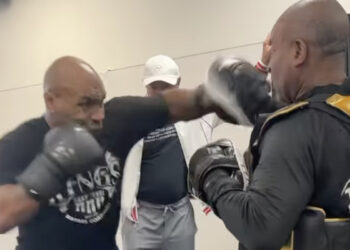People refer to Dungeons and Dragons as DnD or D&D. The role-playing game is open-ended; most people play the game indoors, and the participants sit around a tabletop.
One player assumes the Dungeon Master (DM) role; this player should have a great understanding of the DnD rules.
Other individuals take control of other characters. The games are about magic and spells, and in this article, you will find information about spellcasting ability modifiers. So, let’s find out.
What Is My Spellcasting Ability Modifier?
You will be able to know your spellcasting ability by looking at the class description section. Every spellcasting class has a section in the class description that clarifies the ability score used for spell save DCs and spell attacks. For example, it’s the wisdom ability that allows the druids to cast spells. You can find this information on the player’s handbook (page 66).
Additional Information
The DnD game has several users’ books, such as the player’s handbooks, that help the players understand the game’s rules. The player’s handbook has twelve classes, and seven out of twelve can cast spells by default.
Two classes can get the spellcasting ability from the subclass. The subclasses have their entries to the spellcasting class feature, excluding the warlock, which depends on pact magic.
Each class has a unique spellcasting ability. The spellcasting ability is simply the ability sore that determines the effectiveness of your spells.
It affects several things such as the number of spells you can prepare, the spell attack modifier, etc. Certain spells increase the numerical effects depending on the spellcasting ability.
How To Cast The Spell Modifier?
The spell attack modifier is similar to your proficiency bonus or the wisdom modifier, which equals +4. It means that anytime you do a spell that needs the spell attack roll, you will have to roll a d20 and add four to it.
Spellcasting Ability Modifier In DnD Version 5
Cleric
The spell save DC = Eight + wisdom modifier + proficiency bonus
The spell attack modifier = wisdom modifier + proficiency bonus
The spellcasting ability of the cleric spells is wisdom. The unique power of the spells comes from your loyalty to your deity.
Each time the cleric spell identifies your spellcasting ability, you use your wisdom. In addition, you use the wisdom modifier each time you place the saving throw DC.
Bard
The spell save DC = eight + charisma modifier + proficiency bonus
The spell attack modifier = proficiency bonus + Charisma modifier
The bard spells spellcasting ability is charisma. The magic is from the soul and heart that you pour into your oration and songs. If the spell refers to the spellcasting ability, you will use your charisma.
The Spellcasting Foci
Some classes utilize an object known as the spellcasting focus. The spellcasting focus allows the spell caster to focus instead of the inexpensive material components during spellcasting.
The types of foci available vary according to the class. You will find all the necessary information about foci in each class’s pact magic or spell casting entry.
Certain classes do not use the foci but can use the spellcasting pouch. The spellcasting pouch performs similar functions to the spellcasting foci but is not as exciting and cool.
The Spellcasting Methods
Spellcasting has two primary methods, which are knowledge and preparation. Here is more information about the different techniques.
The Knowledge Method
Here the spell caster learns several spells while gaining levels. The spells usually stick on the spell caster’s mind, and you can use them anytime you have the appropriate spell slot to do so.
You should know that the number of spells you can learn depends on the class. You need to check your class’s table to see the number of spells you can understand.
The Pact Magic
The pact magic is simply a slight variation of the above method “knowledge.” The warlock’s spell learning process is similar to that of sorcerers and bards.
However, the functioning of the warlock spell slots is quite different from other classes with spellcasting features. Usually, the pools of the spell slots recharge after a long rest, but the pact magic allows the warlock’s spell slots to recharge only after a short rest.
The Preparation Method
Here the spell caster has all the spells, and after resting for some time, the spell caster can decide to reset the spells they have prepared. The spellcaster can also choose several spells on the list that you can cast at high levels.
For example, the third-level druids who have 16 Wisdom can make six spells every day. In addition, because they are third-level, the druids can cast second-level spells. It means they can prepare any spell only up to the second level.
The Wizards
These characters use slight variations to the preparation method. The wizards can prepare spells like druids and clerics, but they do not have the whole spell list.
The other thing about wizards is that they learn about the spells by recording them in the spellbook. Over time, the wizards record spells, expanding their options on the type of spell they can prepare.
In theory, the wizard can collect all the spells published on their spell list and add them to the spellbooks. However, this action is time-consuming and so expensive, therefore not worth the effort.
The way the wizards cast spells is different to another spell caster, it’s because others have to prepare the spell or know it, but the wizard can cast a ritual or spell as long as it’s in their spellbook.
Innate Spellcasting
There are some creatures in the dungeons and dragons game that can cast the spells innately. It means they do not need any levels in a spellcasting class.
The innate spellcasting functions similarly to normal spellcasting. The creature can only do specific spells at particular levels, does not have the spell slots, and cannot cast the spells at higher spell levels.
However, if the creatures innately know cantrips, will they continue to improve as the total levels increase? The best examples are the Tie flings, and High Elves have the cantrip as their racial trait.
The cantrips usually improve according to the character’s total levels. A character can have both spellcasting class levels and innate spellcasting, but the two abilities cannot function together.
Psionic
Other Dungeons and Dragons game creatures use phonics which is somehow identical to spellcasting. The common and standard way of casting spells is using traditional magic.
The Dungeons And Dragons Game
How to Play
The players have to create player characters and record them on the character sheet to play the game. The player will determine the character’s ability score, such as wisdom, constitution, strength, etc.
Determining the scores varies according to the different game versions. The players then have to select the species or race, like the elf or human. Then the character class is the same as the occupations like wizard or fighter.
There are other things that the player should select, like the alignment, which is the ethical and moral outlook.
Campaigns and Adventures
The D&D game is all about adventure. In the game, there is the DM who is in charge of the game. The DM can design another adventure or follow any of the premade adventures, referred to as modules.
The modules have been in use throughout the history of the D&D game. The published adventures have the background story, goals for the player characters, maps, etc. Some have handouts and location descriptions that will make the game more fun and memorable for players.
You can also play a series of linked adventures which are known as a campaign. The adventures can happen on a fictional planet, country, city, etc. These places are known as world or campaign settings.
The D&D game is from a different fantasy genre and thus has varying levels and various types of technology and magic.
The Miniature Figures
The Dungeons and Dragons came from wargames; miniature figures represented the combatants. The dungeons continued to use the miniature until the 1977 game edition.
However, some players continued to use the miniatures as a visual reference. During this period, the companies sold specific miniature figures for the Dungeons and Dragons games and similar games.
The companies that made the original miniature figures for Dungeon and Dragons were citadel and Grenadier miniatures etc. Today’s dungeon game has some additional rules to the original game.
Conclusion
The Dungeons and Dragons game has been around for years. There have been slight adjustments in the rules, but other features are still similar to the original.
The D&D game has rules and terms that you need to understand to play it well perfectly. Plus, the game is fun when you play as a group. The players then create player characters, each with different qualities.







